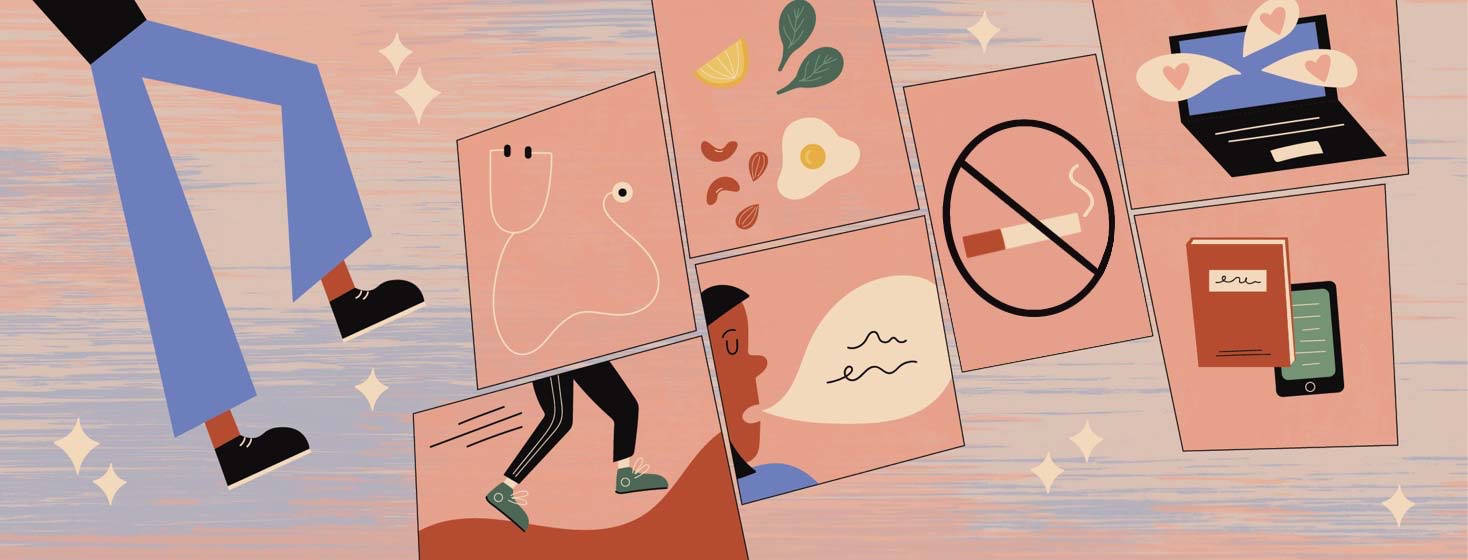The Should-dos in a COPD World
You likely know that COPD stands for Chronic Obstructive Pulmonary Disease, an umbrella term that covers emphysema, chronic bronchitis, and the genetic form of COPD, Alpha-1 (Antitrypsin Deficiency), but what should you do if you have it?
What to do if you have COPD
Everyone is unique in how they experience COPD. All people have their own family and medical histories. There are also different stages of diagnosis and progression.
Here are the four stages of COPD.
- Mild
- Moderate
- Severe
- Very Severe or Stage 4
Certain strategies can help you cope and slow the progression of the disease, regardless of your stage or medical history. Here are specific should-dos for people with COPD.
Realize that you can’t go backward in time
If you smoked, you smoked. You can’t change yesterday, but you can change tomorrow.
If you are smoking, stop! Did you know that cigarette smoking is the #1 cause of COPD? Second-hand smoke can also trigger COPD or make it worse. It’s important that you also avoid places of second-hand smoke and that you don't allow anyone to smoke anything inside your house.
Seek medical care if you are short of breath
If you are short of breath, your general physician can refer you to a pulmonologist (lung doctor).
The pulmonologist will likely schedule you for a pulmonary function test (PFT), which helps to diagnose your COPD and identifies the stage of your disease. Your doctor may also run additional tests. CT Scans, 6-minute walks, blood work, and arterial blood gas tests can show how oxygen is moving in your blood and how well it is removing carbon dioxide. After these tests, your doctor will likely share the results. Schedule return visits as requested by your doctor.
Take medications as prescribed
Your doctor will prescribe the medication that will benefit you the most with your COPD.
Over time, your doctor might tweak or switch your medication if one isn’t working as it should. You must take your medication as directed. Be sure to let your doctor know about any over-the-counter medications that you are taking, topical as well as oral or injected medications.
Some medications might have a negative effect or reaction with other medications. Your pharmacist is another person who can advise you on the compatibility of your medications if you aren’t seeing your doctor.
Proper nutrition is important
Some people with COPD might find they are losing weight, even when they don’t want to. This occurs most often during the later stages of COPD. Labored breathing can also burn extra calories. If you are losing too much weight, it is important to drink Boost or other protein drinks. Eating foods with higher calories can help as well.
Vitamins are also very important. Discuss this with your doctor, who might advise you to talk with a nutritionist.
On the other side is obesity. Certain medications, the reduced ability to exercise and depression can contribute to weight gain for people with COPD. Obese people can struggle more often with shortness of breath. They might also have heart issues or even sleep apnea. Your doctor is the best person to advise you on the type of diet you should be on and the number of calories you should be taking in. Your doctor may also recommend that you talk with a nutritionist.
Exercise when you can
Exercise is so very important for your overall health. Strengthening your muscles can help you to breathe better and avoid muscle wasting, which can occur with rapid or excessive weight loss. It can also improve balance and give you the strength to move your body, especially with getting and out of chairs, beds, and toilets.
Find support for your COPD journey
Support is so important to your overall health. Physical as well as emotional.
Where can you find support? A therapist; a face-to-face group such as Better Breathers; or even an internet support group, such as here in our community, can all help. Any of these options will likely connect you with others coping with COPD and its challenges.
Journal for better mental and physical health
When I was young, diaries were so important. Then, we had a tiny key to help keep our diaries private. It was never a thought that anyone would break into our “locked and protected” diary. Sure enough, my brother and his friends got hold of it and could get into it so easily. My mom did too.
Now, we call it journaling. There is no need for a lock and key. We know how important journaling can be for mental health. It helps us learn to be honest about how we cope with this COPD disease. Because I have documented my journey, I can look back in time for information that can be helpful when I need more context. It can help me to find inner peace because it shows me that I’m working to help myself. I can do so if I share this with others, even to discuss my posts. I can even doodle in it! Sometimes it helps me to take the time to decipher my doodles. It's kind of fun to find out what the doodles tell me.
Share your strategies
Can you think of any other should-dos with COPD? Feel free to share in the comments section below.

Join the conversation